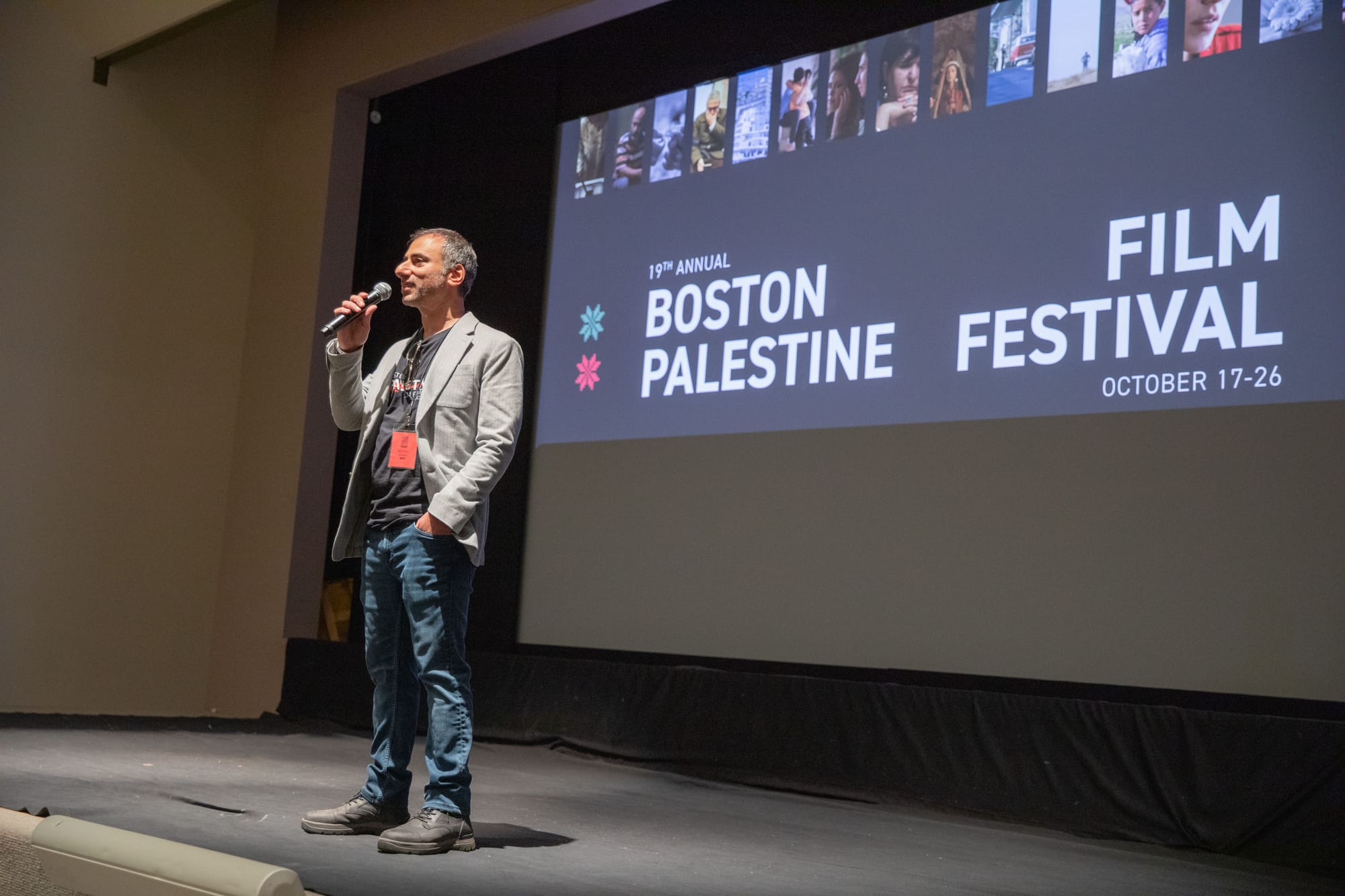Interview: Michael Maria, Boston Palestine Film Festival Director of Programming
"There is still this hope for moving beyond and for Palestinian liberation."

Films are important cultural artifacts. They are key to cultural memory, celebration, and preservation of visual cultures. And no cinema anywhere in the world has reckoned with this truth more than Palestinian cinema. Palestinian film is thus an integral part of Palestinian history and the story of modern Palestine and its people, both at home and in diaspora.
It’s the only cinema industry in the world with a consistent output that has been as fully and utterly enmeshed in political reality. There is but one subject in Palestinian cinema, even if it is told in many beautiful and diverse ways (and with different gradients of hopefulness): the occupation and ethnic cleansing of the land of Palestine.
It is in this context that I had an insightful conversation with Michael Maria, the Director of Programming at Boston Palestine Film Festival since 2016 and previously the festival’s Director of Operations. As the festival’s longest-standing face, Michael, a Palestinian American with familial roots from Bethlehem, Palestine, has likely done more for Palestinian film than any other Bostonian.
We chatted over Zoom about this year’s Boston Palestine Film Festival, Palestinian film more broadly, and future festival plans. (This interview has been lightly edited for clarity and flow.)
BOSTON HASSLE: Tell me a little bit about the films at this year’s festival.
MICHAEL MARIA: It was a really strong program this year. Even beyond just the films, we had an art exhibit and a cooking class to make it a more well-rounded festival.
With the films, we have a number of homages to Gaza because it’s really still in the forefront of everybody’s minds having lived through the past two years of livestream genocide. Even though there’s a “ceasefire” now, it doesn’t change much in people’s hearts and minds right now. Gaza is still heavy on our hearts. I’ve got a powerful experimental, documentary, and narrative shorts program that’s the BPFF homage to Gaza.
And then we have Put Your Soul on Your Hand and Walk. It is just tremendously powerful getting to know Fatma [Hassona] on a personal level and seeing her firsthand account and knowing that she was killed after the film was selected for Cannes.
A State of Passion follows the Palestinian medic Dr. Ghassan Abu Sittah and his time serving in Gaza hospitals and the absolutely horrific experience of trying to operate in facilities being destroyed and bombed, and with no resources and electricity. They are all really powerful. Our opening and closing films are great narratives.
Thank You for Banking with Us by Leila Abbas is really a comedy beyond anything else and isn’t specific to Gaza. It was created and conceived before October 2023. It is still so notable because it centers Palestinian society and Palestinian challenges in terms of patriarchy and Islamic law, and the things that really impact Palestinian society. We get a good glimpse of the occupation and how that impacts people’s lives, but it’s just a well-done story at the end of the day. The same is true with Happy Holidays, which centers on a Palestinian family with Israeli citizenship in the ‘48 territories. It’s just a smart, well-done film that has interweaving storylines and timelines that center on this family.
We’ve also been doing a collaboration with 7ajar حجر School of Creative Research/Resistance (Co-Presented by Art Education and Ciné Culture Screening Series at MassArt). We’re bringing in budding Palestinian and non-Palestinian filmmakers to come and work together and collaborate and create short films. It’s really good to be able to give back too and encourage budding filmmakers.
BH: What themes do you see across the films this year?
MM: I would go back to Gaza, because it’s huge and on everybody’s mind, which is why we have three programs dedicated to it.
Continue reading at the Boston Hassle.